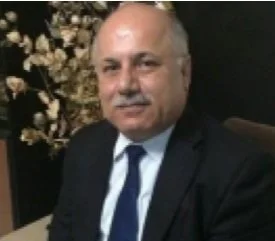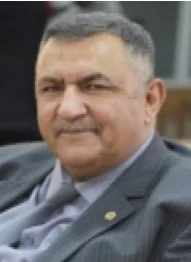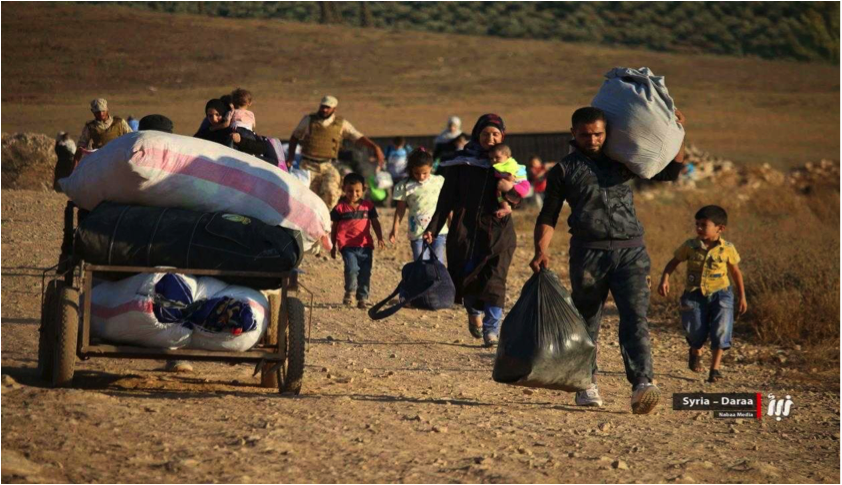Iraqi, independent, Non-governmental and Non-profit organization, consists of a number of members and human rights activists who believe the human is the highest value which must be respected. They all volunteered to defend the rights and dignity of the Iraqi human regardless of his religion, sect, nationalism, sex, origin, ideas or political affiliation.
Our organization was named Hammurabi because this name holds a number of meanings and Iraqi historical, humanitarian and civilized indications, while the law of the Babylonian monarch Hammurabi, which was issued in his thirtieth year of rule which lasted from 1792 to 1750 BC, is considered one of the most famous legal texts – written and historical – which took interest in regulating the society’s life by imposing justice and preserving people’s rights with a law that was accepted during that era, until this day, that law continues to be the foundation of the idea of law in the world, that’s for its great interest in prioritizing human rights which took place after reuniting Mesopotamia in one state .. in the preface of the law we can witness his commitment to the happiness of the Mesopotamian Babylonian society, its prosperity and the rule of law and order which preserves rights, freedoms and security for individuals.
William Khamo Warda
MA in International Studies / University of Baghdad BA in Political Science/University of Baghdad/ studied Civil Engineering-University of Mosul 1981- 1988. He is a Co-founder of Hammurabi Human Rights Organization and its president from 2007 until 2013, currently HHRO's public relations officer. Also Chairman of the board Alliance of Iraqi Minorities (AIM), and Vice-president of the Iraqi forum network for Iraqi human rights organizations. He has many different studies and researches, "International Protection for Minorities, the condition of the international protection for Iraqi Christians", as a case study. A research submitted at the college of political science - Baghdad university under the title "The political and civil rights of Chaldo Assyrian people in Iraq 2010. A research to Iraqi studies Magazine under the title" The Assyrian in Iraq" also a research" The situation of Iraqi refugees in Syria". He is an Author of a book of "human rights in Iraq and the needed protection" issued 2015. Also A Research "freedom of belief in the Arabian states ".2013. He participated in the conference to establish a strategy for anti-radicalization in Nineveh in 2018 organized by SANAD Foundation, He supervised many workshops for building peace and social cohesion in Iraq. He leaded RESPOND Multi-level governance of Mass Migration in Europe and Beyond and D.RAD on DE-RADEICALISATION IN EUROPE AND BEYOND: DETECT, RESOLVE, AND RE-INTEGRATE.
Khalid Abdul Ghaffar Al Bayati
is a highly accomplished Iraqi military officer, academic, and expert in national security and strategic studies. He was born on June 23, 1959, in Baghdad, Iraq, and began his military career by earning a Bachelor of Iraqi Military Sciences in 1982. He continued his education throughout his career and earned a Master of Military Sciences from the Iraqi Staff College in 1994, a Master of Defense Sciences College of War from NATO in 2005, a Master of National Security from the National Defense College in South Korea in 2013, a Bachelor of Political Science from the University of Baghdad in 2015, a Diploma in International Humanitarian Law from the San Remo Institute in Italy in 2016, and a Professional Doctorate in Human Resources Management Strategy from Oxford University in 2019.
Al Bayati has held numerous positions within the Iraqi military, including serving as an officer in the Ministry of Defense from 1982 to 2016. His final position was as the commander of the Center for Military Values and Principles in the Army Chief of Staff's Training Department. He has also served as a visiting lecturer at the Command College of the Defense University for Postgraduate Military Studies and as a supervisor of master's theses for students of the Iraqi Staff College.
Al Bayati is also a member of several organizations and committees related to national security and human rights. He is a member of the Hammurabi Organization for Human Rights, the Permanent National Committee for International Humanitarian Law in Iraq, and the Security Sector Reform Team for the Iraqi National Security Structure. He was also a member of the writing team for the countering violent extremism strategy issued in February 2019.
Currently, Al Bayati works as an advisor to the Accreditation Center for Security and Strategic Studies and is an expert and researcher at the Al-Nahrain Center for Strategic Studies under the National Security Adviser. He is also a lecturer at the Intelligence Institute of the Ministry of Interior. In addition, he serves as an advisor to the SFC International Organization for the Protection of Civilians in Conflict Areas and is a member of the Strategic Experts Union Center in Iraq, the Iraqi Trainers Syndicate, and the German Board of Trainers.
Throughout his career, Al Bayati has been committed to improving national security and human rights in Iraq. He has published numerous articles and research papers on these topics and has participated in training programs with organizations such as NATO. His expertise and contributions have made him a highly respected figure in his field.
Mohammed Kazem Al-Maeeni
Mohammed Kazem Al-Maeeni distinguished academician and human rights activist, born in Iraq. He graduated with a Bachelor's, Master's, and PhD in Political Science from the University of Baghdad. He has pursued his academic interests and has made significant contributions to the political landscape of Iraq.
Al-Moayyed is a member of the Board of Directors of the Hammurabi Human Rights Organization, Research and Studies Committee Incharge, and the Head of the Legal Committee. Additionally, he is a founding member of the Tigris Center for Strategic Studies and Planning. Throughout his career, he has been instrumental in raising awareness about human rights issues and promoting democratic values.
Al-Moayyed has worked as a lecturer in the College of Media at the University of Iraq, where he taught political science, human rights, and democracy. Currently, Al-Moayyed is the former head of the law department and a lecturer at Al-Nisour University. His academic pursuits have led him to publish several scientific research papers in the field of politics and security in Iraq and other countries.
Furthermore, Al-Moayyed has been an active participant in various scientific conferences and seminars. He has also managed and participated in dozens of technical and scientific workshops on human rights, international and domestic politics, and other important topics. His unwavering dedication to the advancement of human rights and democratic values continues to make a positive impact on society.
Mohammed Noor Ahmed
BA in Petroleum Engineering from the Syrian Private University - Damascusin 2013. Currently, he serves as a Research Projects Coordinator and Secretary at the Hammurabi Human Rights Organization (HHRO). With over ten years of extensive managerial experience, he has worked in various local Iraqi companies and global organizations. He has been involved in notable roles, such as being the HR Manager of Al-Burhan Group - Baghdad International Airport Hotel and holding positions at both Samsung and Nokia agencies in Iraq. Additionally, he contributed to the residential Park View project in Erbil. He was also a founding board member of Jwan Contracting and Real Estate Investment Company, the second-largest contracting company in Baghdad. Presently, he manages an independent news website called "Nirgal Gate News Network" which focuses primarily on human rights, minorities, internally displaced persons (IDPs), and refugees. Through his platform, he strives to shed light on these crucial issues and raise awareness about the rights and well-being of marginalized communities.









Morocco occupies a strategic position south of the Strait of Gibraltar, at the crossroads of migratory routes between sub-Saharan Africa and Europe. This geographical location confers upon Morocco both a pivotal role in migration flows and significant political leverage in its negotiations with the EU. Consequently, Rabat claims a differentiated treatment compared with other African states. Since 2000, the European Union (EU) has aimed to establish a readmission agreement with Morocco[1]. Such an agreement would facilitate the return of both Moroccan nationals and third-country nationals (TCNs) transiting through Moroccan territory who are deemed undesirable within the EU. After more than twenty years of negotiations, no agreement…